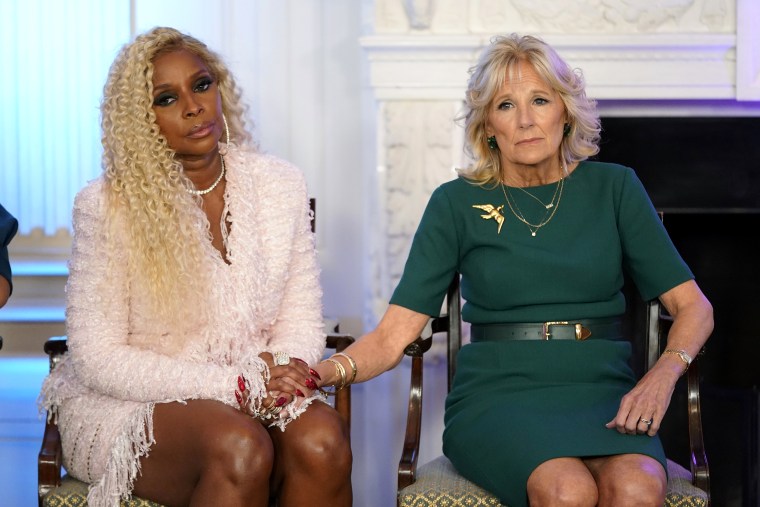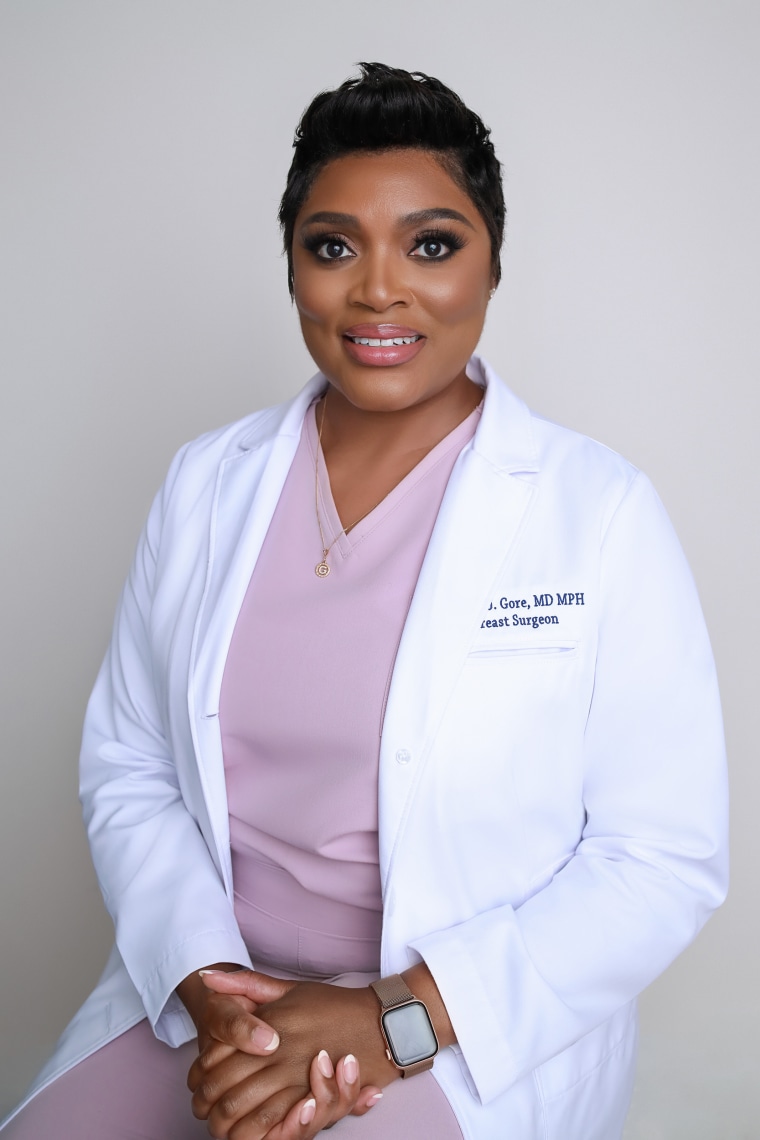The Biden administration’s initiative to spur prevention and treatment of cancer got a dose of celebrity support earlier this week, when singer Mary J. Blige joined Jill Biden and the American Cancer Society to announce national meetings on breast and cervical cancer.
The cancer organization pledged to run the events after President Joe Biden and the first lady resurrected the “cancer moonshot” initiative this year. The program provides more money for research to “help us end cancer as we know it. For good.”
R&B superstar Blige said she lost aunts and other family members to breast, cervical and lung cancer. She has promoted breast cancer screening in the past, especially among Black women who are disproportionately affected, through the Black Women’s Health Imperative.

Blige blamed misconceptions about mammograms among Black women and “the practice of not wanting other people in our business” for disparities in breast cancer outcomes between Blacks and whites.
Blige said she is convinced that had her aunts, godmother and grandparents been informed about cancer, “they would have a different outcome today.”
According to the American Cancer Society, the average age for a breast cancer diagnosis in Black women is around 60, but they have a higher chance of developing breast cancer before the age of 40 compared to white women. Ryland J. Gore, M.D., an Atlanta breast surgical oncologist, said Black women should consider getting their annual screening as early as 35 and begin having discussions with their doctor at age 30, especially for individuals with a family history of breast cancer.

“I think that there’s fear associated with getting mammograms,” Gore said. She said many women are afraid to get screened because they are fearful of their results or needing to do a biopsy. “I do want to make sure women know that the overwhelming majority of biopsies are benign,” she added. “You should get your screening mammogram starting at 40 years of age, and this should happen every single year.”
Gore said there are also several factors why Black women are 40% more likely to die from the disease, including discovering symptoms at a later stage of the disease. Black women and “not being taken seriously” when they discuss their symptoms with medical professionals, and are “not getting the appropriate imaging even when they present with a complaint,” Gore said.
Gore witnessed firsthand the impact this can have on Black women. She recalls how one of her patients, who is in their late 20s, visited the emergency room over concerns of a mass developing in her breasts. During her visit, doctors misdiagnosed the patient as having a breast infection. Convinced that her diagnosis was inaccurate, the patient decided to seek care from Gore, who then made a gruesome discovery.
“She has a rock-hard mass in her breast,” Gore said. “And she ends up with stage 3 cancer, even though it could have been caught very early.”
Additionally, Black women are more susceptible to getting diagnosed with the most aggressive form of breast cancer and are more likely to experience delays getting diagnosed, even following a mammogram, she said.
“We literally experience delays at every single turn,” she said. “We can’t put all of this on a patient. A lot of it has to do with the health care system itself.”
Gore said these disparities point to the lack of diversity within the medical profession. She explained that few Black people and other minorities are participating in life-saving clinical trials, a direct result of poor recruitment, she said. Medical institutions also need to establish trust so that Black people and other people of color “feel comfortable interfacing with the medical system,” she said.
Part of the new initiative, the first lady said, will help encourage collaboration and research, invest in new treatments and therapies and help people get the best care and support for their loved ones.
Biden said it is about creating “a future where we don’t have to be afraid of the word cancer anymore.”
While there is no cure for cancer, there are steps that Black women can take to decrease their risk of getting it. Gore said since fat fuels female hormones that contribute to most breast cancers, maintaining a healthy weight through exercise, along with eating a balanced diet with minimal processed foods can help decrease the risk in Black women, who are more prone to obesity. She also recommended abstaining from smoking and limiting alcohol consumption as an effective prevention method.
“I always tell patients that health care is self-care,” Gore said. “ If you feel something, say something… If there is something wrong, don’t wait. Get help as soon as possible.”
